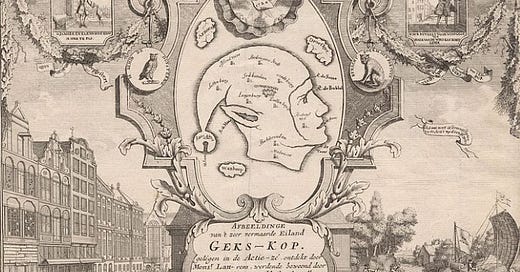Mutinous Women
While researching coming episodes of What Happened, I received as a Christmas gift a strange, beguiling book about an author’s quest to fill in a series of unexpected historical blanks
History is riddled with episodes in which significant plot twists are lost in the telling, when no one bothers to ask, “Whatever happened to that French orphan, Marie Baron, who supposedly stole a ribbon?”
Here arrives a book by Joan DeJean, a scholar originally from Louisiana who, until her death last month, divided her time between Paris and Pennsylvan…





